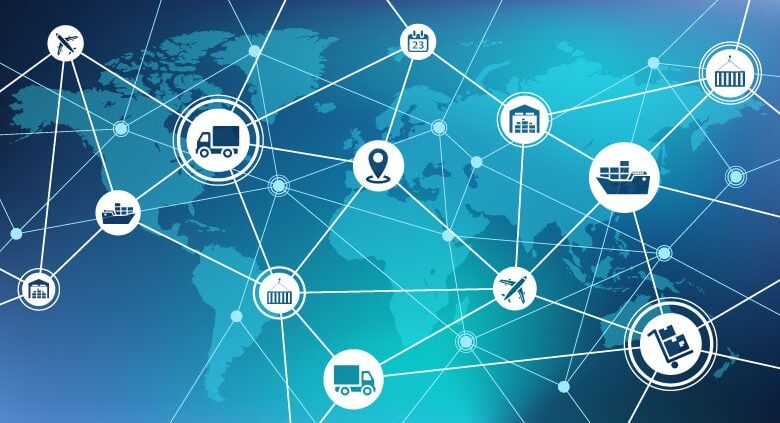Building Supply Chain Resilience Through Smarter Cargo Security

Supply chains face rising pressure from global risks, ranging from theft and tampering to stricter compliance demands. Resilience has become the defining measure of how effectively companies can adapt while protecting cargo in motion. Stronger security systems are not limited to technology alone but rely on practical safeguards that leave clear evidence of protection. Every component, from physical devices to supplier relationships, contributes to building layers of defense that maintain operational strength. In this way, cargo protection evolves into a driver of long-term resilience that benefits the entire supply chain.
The conversation about resilience goes beyond locking down goods; it reflects how companies adapt to an unpredictable landscape where disruptions occur regularly. Modern strategies emphasize collaboration with reliable suppliers, investment in tamper-evident innovations, and a focus on compliance across borders where standards vary. These measures do more than prevent theft; they strengthen trust and efficiency throughout the chain while encouraging accountability. When stakeholders know that security systems are consistent, they gain confidence in delivery outcomes and long-term partnerships.
The Value of Physical Safeguards
Physical safeguards remain one of the most dependable tools in cargo protection. Devices such as trailer seals provide visible assurance that shipments have not been accessed. Their durability makes them practical for long-haul transport across varied conditions. When broken or missing, they signal clear evidence of tampering. This transparency benefits both carriers and receivers by ensuring accountability. It also creates a standardized method of checking integrity at every handoff. Such consistency strengthens resilience by making inspections faster and more reliable. Physical safeguards, therefore, act as the first barrier in a larger security system.
Beyond their immediate function, these safeguards influence how companies manage compliance. Authorities rely on visible indicators to confirm shipment integrity during routine checks. This reduces delays at borders and inspection points, helping cargo move without unnecessary disruption. As global trade expands, the ability to demonstrate tamper resistance becomes increasingly critical. The use of seals aligns with regulations that emphasize accountability throughout the supply chain. At the same time, they contribute to customer confidence by showing that goods are protected. Strong physical safeguards reflect a company’s commitment to resilience. They reinforce security as both a practical and strategic necessity.
Dependence on Reliable Partnerships
Behind every secure shipment lies a network of trusted partners. Reliable sealing wire suppliers provide the quality materials needed for consistent cargo protection. Their role ensures that the integrity of seals holds under pressure and varying environments. Weak or inconsistent materials could compromise the entire system, exposing shipments to risk. By sourcing from dependable suppliers, logistics providers maintain higher standards across operations. This reliability strengthens resilience by minimizing unexpected failures. It also helps companies meet international compliance standards that require consistent performance. Supplier partnerships therefore act as a critical element in overall cargo security.
These relationships extend beyond simply supplying products. Trusted partners contribute innovation, offering improved materials that enhance both safety and usability. They also provide timely delivery, reducing the risk of shortages that disrupt operations. Companies that cultivate long-term supplier relationships benefit from stability in uncertain markets. This stability is an essential component of resilience, as it ensures that protective measures remain consistent. In addition, ethical sourcing from reliable suppliers supports broader corporate responsibility efforts. Strong partnerships thus serve both operational and reputational needs. They form an essential part of a resilient supply chain network.
The Role of Tamper Evident Materials
Tamper evident solutions add another layer of defense to supply chains. Security seal tape provides immediate visibility if a package has been altered. Once removed, it leaves clear evidence, ensuring accountability at every stage of transport. This feature is particularly useful in industries that handle sensitive or high-value products. It allows logistics teams to detect potential breaches without relying on complex technology. The simplicity of the material makes it cost effective and accessible to a wide range of companies. At the same time, it complements other security measures already in place. This layered approach reinforces resilience by covering multiple points of vulnerability.
The effectiveness of tamper evident materials lies in their ability to support both compliance and trust. Customs authorities can quickly confirm whether shipments remain intact, reducing inspection delays. Clients also gain assurance that protective measures remain active from origin to delivery. Companies that use these materials demonstrate accountability and reinforce transparency in their operations. As threats to cargo evolve, these solutions continue to adapt to new demands. They remain an essential complement to physical seals and supplier partnerships. By combining multiple protective tools, logistics providers strengthen resilience across their networks. Tamper evident materials therefore serve as both a safeguard and a trust-building mechanism.
Integrating Multiple Layers of Protection
Supply chain resilience depends on overlapping layers of protection rather than single solutions. Physical devices, reliable suppliers, and tamper evident tools all contribute unique strengths. When integrated, these elements provide comprehensive coverage against diverse risks. A multi-layered system ensures that if one measure fails, others remain effective. This redundancy reduces vulnerabilities and keeps shipments moving securely. Staff training enhances this structure by equipping teams to recognize and respond to issues. Human oversight brings judgment where equipment and materials may be limited. Together, these layers form a system designed for adaptability and durability.
The effectiveness of integration lies in cross verification. A broken seal can be confirmed with tamper evident tape, while supplier reliability ensures material consistency. Each measure supports the others, reinforcing trust throughout the chain. This creates transparency for regulators, customers, and internal teams alike. By aligning these practices, companies reduce the chance of disputes and delays. Integration also allows businesses to meet stricter standards without excessive costs. As a result, companies build resilience while maintaining efficiency. A balanced system of overlapping protections reflects a forward-thinking approach to global logistics.
Wrap Up
Resilient supply chains require more than reactive security; they demand proactive strategies that integrate multiple forms of protection. Each safeguard, whether physical seals, supplier quality, or tamper evident materials, plays a unique role. Together, these measures create accountability, transparency, and efficiency. They ensure compliance with international regulations while building trust across partners and clients. Companies that neglect these layers expose themselves to higher risks of disruption and loss. Resilience is not achieved through a single solution but through comprehensive systems.
The importance of resilience will only grow as global trade expands and risks intensify. Supply chains must continually evaluate and strengthen their protective frameworks. Each improvement in materials or supplier relationships contributes to broader stability. Companies that treat security as a strategic priority gain advantages in performance and reputation. This approach not only prevents tampering but also reinforces customer trust. Security therefore becomes a foundation for growth and adaptability. In an unpredictable market, resilience defines success. Strong supply chains protect cargo, safeguard compliance, and secure the confidence of every stakeholder.




